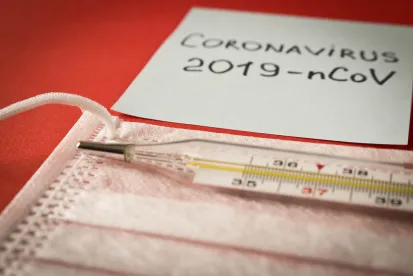As manufacturers of vaccines, pharmaceutical medicines, ventilators and respirators engage substantial resources and ramp up production to help fight COVID-19, many have presumably done so under the immunity protections afforded by the federal Public Readiness and Emergency Preparedness Act (the PREP Act codified at 42 USC §247d-6d), and Coronavirus Aid, Relief, and Economic Security Act (the CARES Act). Because of industry-wide uncertainty surrounding PREP Act immunity and the need for immediate and urgent action on the part of manufacturers, the U.S. Department of Health and Human Services (HHS) recently issued a non-binding Advisory Opinion explaining the scope of PREP Act coverage, its immunity provisions in the context of COVID-19 countermeasures, and informal guidance on the preemptive effect of the federal law.
What remains to be seen is how the PREP Act’s immunity provisions will be interpreted by courts based on the vast array of countermeasures that are being studied and used to fight COVID-19 – from vaccines and medicines being used “off label” to treat the virus to tests developed to detect the presence of or immunity to the virus, as well other measures.
If prior case law provides any guidance, so long as the manufacturer is a covered entity that provides a covered countermeasure, the immunity provisions should broadly preempt traditional state law tort claims. The few courts that have commented on the preemptive force and application of the PREP Act’s immunity provisions did so after the H1N1 influenza virus was declared a national emergency in 2009. See Parker v. St. Lawrence County Pub. Health Dept., 102 A.D.3d 140 (N.Y. App. Div. 2012); Casabianca v. Mt. Sinai Med. Ctr, 2014 N.Y. Misc. LEXIS 5998*4 (Sup. Ct. 2014) (“Interestingly, few cases have been published dealing with PREP…”).
In Parker, the defendant asserted the PREP Act’s immunity provisions as a complete defense against traditional state tort law claims. The plaintiffs alleged common law claims based on the alleged failure of their daughter’s health care providers to obtain informed consent before administering the H1N1 vaccine. The trial court denied the defendant’s motion to dismiss on grounds that “the protections of the PREP Act do not extend to situations in which a governmental entity administers a drug without consent…” The defendant appealed and the question “presented … was whether the PREP Act preempts plaintiff’s state law claims for negligence and battery.”
Following well-established preemption jurisprudence, the appellate court first considered “Congress’s intent in enacting the federal statute” and whether congressional intent to preempt state law was expressly stated in the PREP Act or whether intent was to be implied. The court held that “[w]here, as here, a federal law contains an express preemption clause, [the] ‘focus [is] on the plain wording of the clause, which necessarily contains the best evidence of Congress’s preemptive intent.’” The PREP Act’s preemption clause expressly states that “no State … may establish, enforce, or continue in effect with respect to a covered countermeasure any provision of law or legal requirement that … (A) is different from, or is in conflict with, any requirement applicable under this section; and (B) relates to the … use … dispensing, or administration by qualified persons of the covered countermeasure.”
Because the PREP Act bars states from imposing requirements different from or conflicting with the federal law’s immunity provision that “‘a covered person shall be immune from suit and liability under Federal and State law with respect to all claims for loss caused by, arising out of, relating to, or resulting from the administration to … an individual of a covered countermeasure,” the Parker court correctly concluded that the plaintiffs’ claims were preempted by the PREP Act’s immunity provisions. The court held that “considering the breadth of the preemption clause together with the sweeping language of the statute’s immunity provision, we conclude that Congress intended to preempt all state law tort claims arising from the administration of covered countermeasures…”
The court went on to specifically address the plaintiffs’ argument that the PREP Act did not preempt the alleged state law claims because Congress could not have intended the Act to immunize health care providers who fail to obtain informed consent in violation of state law. The court disagreed and interpreted the PREP Act broadly. “It is not our role … to speculate upon congressional judgments” and “we must presume that Congress fully understood that errors in administering a vaccination program may have physical as well as emotional consequences, and determined that such potential tort liability must give way to the need to promptly and efficiently respond to a pandemic or other public health emergency.”
The well-reasoned express preemption analysis in Parker relied heavily on congressional intent and the urgent countermeasures necessary to address a national emergency. As in Parker, the PREP Act should be broadly interpreted and applied to preempt state law claims in future cases where the PREP Act’s immunity defense is asserted.
As manufacturers continue to assist in efforts to fight COVID-19, we note that there are certain exceptions to PREP Act immunity and preemption. For example, Congress specifically excluded from the PREP Act’s immunity provisions willful misconduct that causes serious injury or death (42 USC § 247d-6d(d)(1)), as well as certain actions by the federal government and State Attorneys General. To the extent that lawsuits may be filed alleging that a covered entity is not immune under the PREP Act, those claims must be brought before a three-judge panel in the United States District Court for the District of Columbia, and the plaintiff must establish, by clear and convincing evidence, that the willful misconduct proximately caused death or serious injury. 42 U.S.C. §247d-6d(e)(1), (5); 42 U.S.C. §247d-6d(c)(3); see also HHS 4/14/2020 Advisory Opinion.
Even though questions remain over the scope of PREP Act immunity and its applicability to countermeasures to address COVID-19, Parker and the HHS Advisory Opinion provide the foundation for the preemption defense. They are well worth reading.





 />i
/>i

